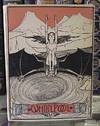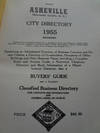![De novis astris, et cometis libb. Sex […]](https://d3525k1ryd2155.cloudfront.net/h/184/827/1423827184.0.m.jpg)
De novis astris, et cometis libb. Sex […]: The earliest published illustration of the rings of Saturn
by LICETI, Fortunio
- Used
- very good
- first
- Condition
- Very Good
- Seller
-
Padova, Italy
Payment Methods Accepted
About This Item
Great provenance: Abenperg-Traun Coat of Arms to both plates; minor defects to the spine, inside light browning to some leaves, very light waterstains to some leaves (below), one leaf repaired, else in good condition.
Two works by Fortunio Liceti bound together.
The extremely rare first edition of De novis astris containing possibly the earliest published illustration of the rings of Saturn and the first edition of the Controversiae De Cometarum.
Galileo observed the rings of Saturn for the first time in 1610, as reported in a lettered he wrote dated 30 July 1610; and he was surprised when in December 1612 he couldn't see the rings anymore.
In his Saggiatore of 1623, at page 217, Galileo reports how in 1616 he was able to observe Saturn in another shape; he had also sent a letter to Liceti describing his discoveries in 1617, and Liceti published these discoveries, along with Galileo's illustration, in this present work. This illustration can be found in the second part of the book, with a sectional title dated 1622: therefore, it is possible that the sheets were already in existence in 1622, and were published and distributed before Galileo's own publication of it, in the Saggiatore, where the dedication leaf is dated October 1623.
The second work belongs to a long dispute between Liceti and Gloriosi regarding the appearance of a comet in 1618.
Fortunio Liceti (1577 - 1657), was an Italian physician and philosopher. He was a colleague and friend of Galileo Galilei, as they worked together for nearly a year at the University of Padua, and the two of them remained friends even after Galilei left Padua and there are 33 letters from Liceti to Galilei and 12 from Galilei to Liceti that they exchanged between 1610 and 1641 that Liceti inserted in his published works.
I work: Carli-Favaro 20 (93); Riccardi II 38; Poggendorff I, 1451.
II work: Poggendorff I, 1451.
Reviews
(Log in or Create an Account first!)
Details
- Bookseller
- Alessandro Borgato
(IT)
- Bookseller's Inventory #
- 82
- Title
- De novis astris, et cometis libb. Sex […]
- Author
- LICETI, Fortunio
- Format/Binding
- Contemporary stiff vellum with Abenperg-Traun Coat of Arms
- Book Condition
- Used - Very Good
- Quantity Available
- 1
- Publisher
- Apud Jo. Guerilium
- Place of Publication
- Venetiis
- Date Published
- 1623
- Pages
- I work: pp. [54], 410, 2; II work: pp. [24], 77, [3]
- Size
- 4to (230x160 mm)
- Weight
- 0.00 lbs
- Keywords
- science astronomy Liceti
Terms of Sale
Alessandro Borgato
About the Seller
Alessandro Borgato
About Alessandro Borgato
Glossary
Some terminology that may be used in this description includes:
- First Edition
- In book collecting, the first edition is the earliest published form of a book. A book may have more than one first edition in...
- Spine
- The outer portion of a book which covers the actual binding. The spine usually faces outward when a book is placed on a shelf....
- Leaves
- Very generally, "leaves" refers to the pages of a book, as in the common phrase, "loose-leaf pages." A leaf is a single sheet...
![De novis astris, et cometis libb. Sex […]](https://d3525k1ryd2155.cloudfront.net/h/184/827/1423827184.0.s.jpg)
![De novis astris, et cometis libb. Sex […]](https://d3525k1ryd2155.cloudfront.net/h/184/827/1423827184.1.s.jpg)


